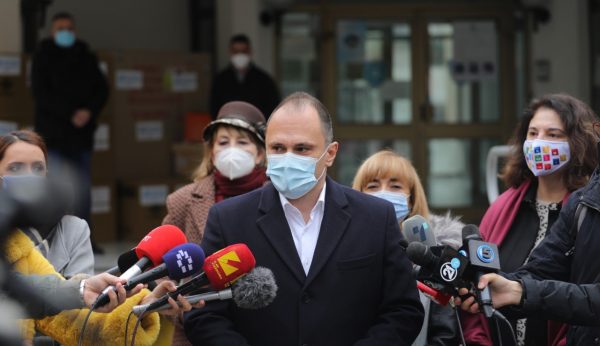It is recommended that curfew is in place for two weeks, which is as long as one epidemiological cycle, when we expect to see actual results. There may be a change to this recommendation, Health Minister Venko Filipche said Monday.
Commenting on the Infectious Diseases Commission’s recommendation to impose a nationwide curfew between 10 pm and 5 am, Filipche pointed out it was evident that in the past ten days the number of COVID-19 patients is on the rise.
“The infection rate is the highest in Skopje, Kavadarci, Negotino, Prilep and Ohrid. This reflects in a way that there’s an increase in hospital admissions. The infectious diseases ward and additional hospital units in Kavadarci are filled to capacity, and the modular hospital has been put in operation. It’s the same in Prilep, and we can see here in Skopje there are more and more cases that require hospital treatment, which is why the modular hospital next to the Infectious Diseases Clinic is back in operation,” Filipche said.
In terms of a surge of new patients, he added, the blow to hospitals is not as severe as it was at the beginning of November, and this is a major difference regardless of the rise in the infection rate.
“It’s very hard to say at this point whether this trend will continue or whether infections will hit a plateau, i.e. whether this wave will be identical to the one in November. Epidemiologists are divided over this question. However, we must be cautious and prepared, and this is the reason behind the recommendation of the Commission for Infectious Diseases to have a 10 pm curfew in place,” Filipche noted.
The Health Minister told reporters that additional restrictions, including postponing the census, won’t be recommended at this point.
“Not for the time being. What we want is to mitigate this trend of increased hospital admissions, so we’re considering new measures and other recommendations, and we’re closely monitoring the situation. No additional recommendations will be made for now,” Filipche said.















